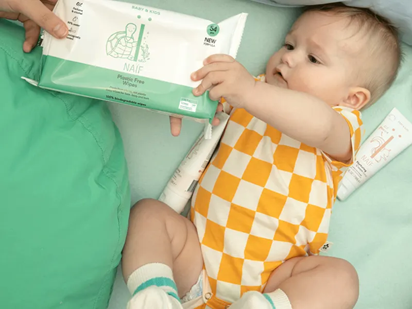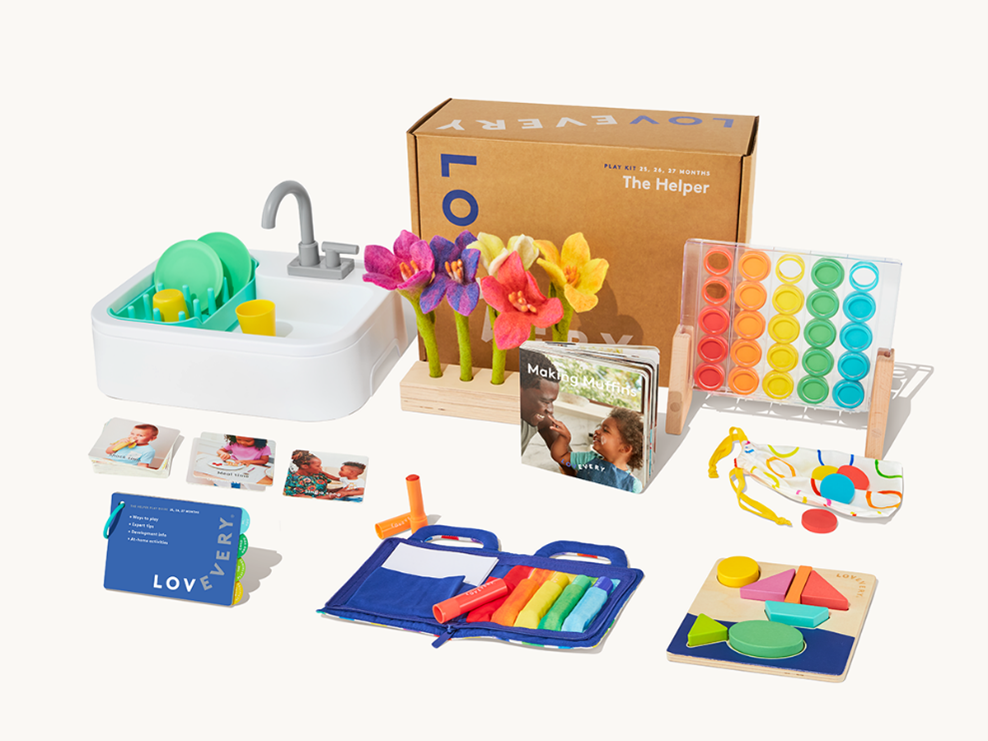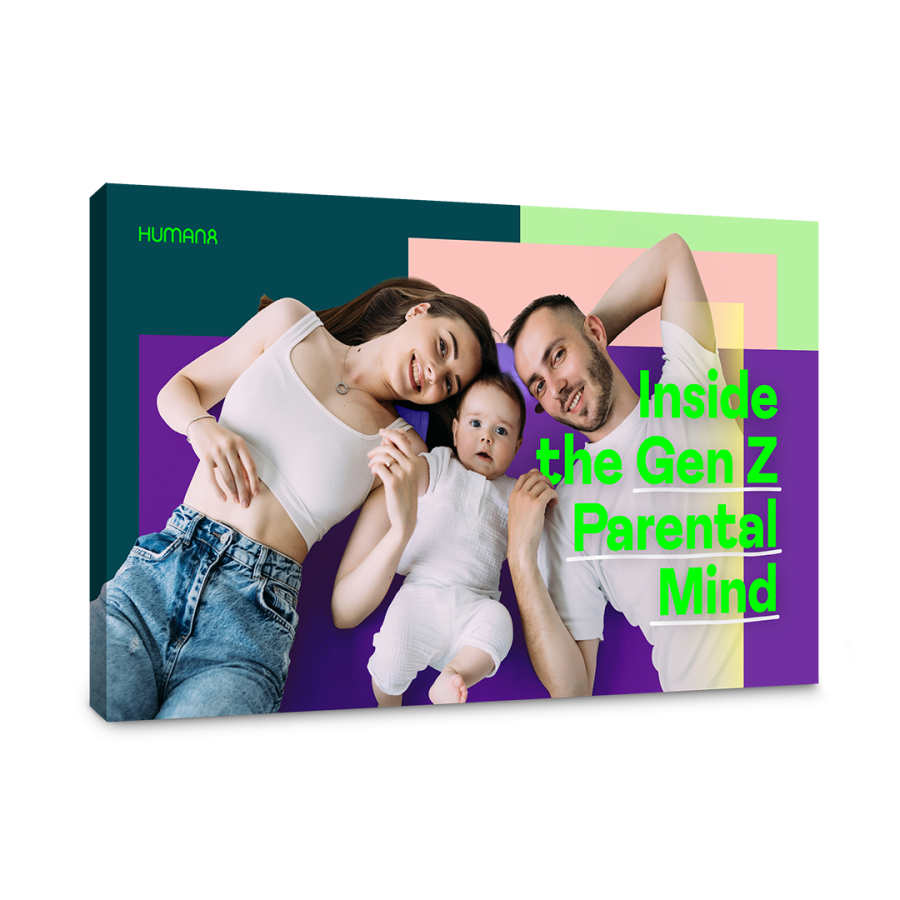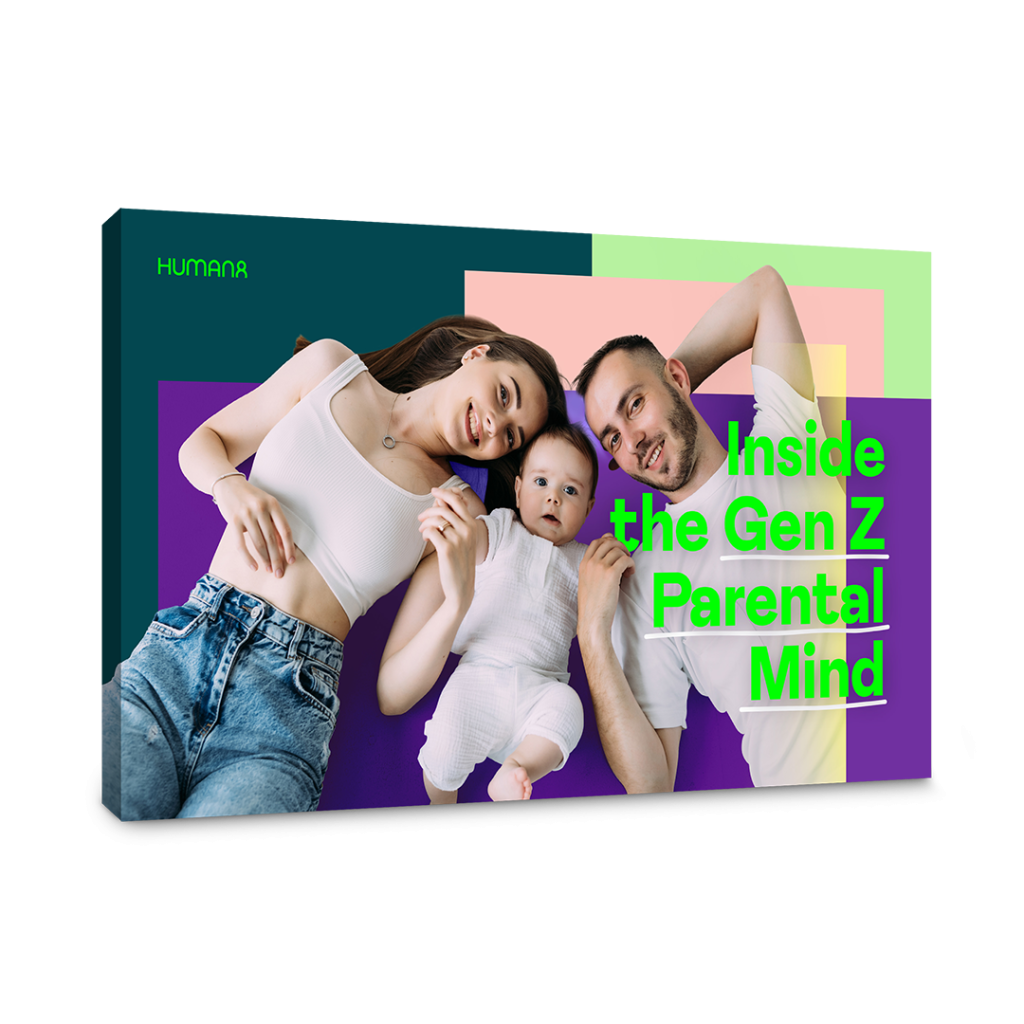BLOG
Gen Z parents are setting new standards for brands: are you ready?
How Gen Z parents prioritize a brand that C.A.R.E.S. – focusing on credibility, affordability, responsibility, emotional connection and sustainability.


Aija Porina
21 November 2024
8 min read
When you think of Gen Z (born between 1997 and 2012), you might picture digital natives, inclusivity advocates, or the generation shaped by the pandemic. But have you considered them as parents? While only a small group of Gen Z has already started a family today, by 2027, they’re expected to account for over half of all births, overtaking Millennials and Gen X. With this shift, Gen Z parents are becoming a key audience for brands. So, what exactly do they expect from your brand?
Gen Z parents want a brand that C.A.R.E.S.
We connected with 115 Gen Y & Gen Z (future) parents to explore the evolving landscape of parenthood, and linked to that their expectations of brands. Gen Z and Gen Y parents both expect a lot from brands, but their priorities are quite different. Gen Y parents focus on safety and reliability – those are their must-haves, but they’re generally more flexible when it comes to things like innovation or sustainability. Gen Z parents, however, are more demanding. They expect brands to excel in a multitude of areas, not just one. When it comes to marketing to Gen Z, safe and reliable products aren’t enough; they want a brand that C.A.R.E.S. – covering all the aspects that matter to them.

C – Credible on ESG and DEI
Both Gen Z and Gen Y parents expect brands to take environmental responsibility seriously, but Gen Z parents set the bar higher. While Gen Y focuses on environmental sustainability, Gen Z demands that brands perform across the broader sustainability spectrum, including ESG (environmental, social, and governance) and DEI (diversity, equity, and inclusion). They want brands to contribute positively to their communities, not just chase profits. An example is Naïf, a babycare brand on a mission to transform personal care by caring for both the planet and families – all families. With a belief that children are the future, Naïf goes beyond products. Through donations to family-focused initiatives and contributions to causes like UN aid for Ukrainian refugees, they invest in future generations. They also support families in need, combining sustainability with education to make a lasting impact.

Gen Z parents are particularly focused on social justice, valuing brands that champion inclusivity and equality. It’s not just about DEI in internal business practices but also how brands represent themselves to the world. They want to see diverse family structures portrayed, from single parents to same-sex couples, and an acknowledgment of dads’ evolving role. Dove Men+Care, for example, is redefining fatherhood by celebrating the diverse roles men play in children’s lives. highlights stepfathers, foster dads, mentors, and more – recognizing all those who embody care. With the message “Care Makes A Dad,” Dove Men+Care encourages us to honour the impact of father figures beyond biology, proving that it’s care, not just blood, that makes a difference.
What sets Gen Z apart is their no-tolerance approach to superficial ESG or DEI efforts. They expect transparency and accountability, demanding clear evidence of progress towards a brand’s goals. Unlike Gen Y, who might quietly disapprove of discrepancies, Gen Z actively holds brands accountable, using their social platforms to call out companies that fall short. They’re not afraid to boycott brands that fail to meet their high expectations, making authenticity key for brands looking to win their loyalty.
A – Affordable
Gen Z parents are redefining affordability with a practical and value-driven mindset. Having entered the workforce during economic uncertainty and inflation, they prioritize financial stability through smart spending. But for them, affordability is about more than just cost; it’s about long-term value and sustainability. This dual focus on affordability reflects their desire for both immediate savings and future benefits, influencing how they shop for their families.
Short-term affordability means finding quality products at reasonable prices without sacrificing their family’s financial health. This is reflected in Gen Z’s increasing preference for white-label brands and second-hand options, as they seek quality without the premium price tag. On the other hand, long-term affordability focuses on durability and longevity. Gen Z parents prefer products designed to grow with their children, like adjustable highchairs or strollers. They also value resale opportunities and the circular economy, considering the lifecycle and resale value of what they buy. Instead of focusing solely on upfront cost, they evaluate price per use, ensuring their investments pay off over time.
This holistic view of affordability explains the popularity of second-hand baby gear, with brands like Mic Mac Minuscule as an example. They provide trendy, pre-loved birth registries, helping parents curate essential baby items second-hand. This approach combines sustainability with practicality, showcasing how smart choices can be stylish while meeting the diverse needs of modern families.

R – Right for me
Gen Z parents are reshaping how they choose products, prioritizing health and safety above all. They ensure every item is free from harmful chemicals, meets the highest safety standards and preferably natural and organic. Transparency matters – they demand clear labelling to make informed choices that protect their loved ones.
But it doesn’t stop there. For these parents, parenthood isn’t about losing their identity but enhancing it. They seek products that align with their lifestyle – whether it’s sleek, stylish baby gear that matches their aesthetic or smart gadgets that simplify daily routines, allowing them to maintain their passions. A great example is outdoor brand The North Face with its convertible maternity wear, blending functionality, style and adaptability to cater to modern parents. Each jacket features a removable baby blanket that zips seamlessly into the coat, enabling parents to keep their infant cozy while staying warm themselves. Perfect for outdoor adventures like hiking, this thoughtful design supports active lifestyles without compromising comfort or practicality.

Gen Z parents also crave customisation, recognising every child’s uniqueness. They value tailored products that support specific health and developmental needs, believing that personalisation leads to higher efficacy. Customisation is a key aspect of their purchasing decisions, as they want solutions that not only fit their family but also adapt to their child’s individuality. Lovevery embodies this approach perfectly. Their play kits are specifically designed for various developmental stages, celebrating each child’s growth journey.

In short, Gen Z parents are looking for products that combine safety, functionality, and personalisation to support their dynamic, multi-faceted lives.
E – Enhanced connection
Gen Z parents are looking for more than just products – they want brands that help them build deeper connections with their children. Strong emotional bonds are a priority, as they believe these relationships will help their kids navigate life’s challenges. Brands that foster trust, facilitate open conversations about emotions, and create opportunities for meaningful discussions are highly valued by these parents. Take Bluey, the beloved Australian TV show. It’s more than just an entertaining cartoon; it teaches emotional intelligence through relatable storylines. Bluey and her family tackle everyday challenges that resonate with young viewers, showing them that emotions – be it anger or sadness – are a natural part of life. This approach not only entertains but also fosters crucial conversations between parents and children.
When it comes to technology, like AI, Gen Z parents are open to innovation but cautious about its impact on emotional bonding. They welcome tools that make parenting easier, provide personalised experiences, and help them be more present. However, they’re clear that technology shouldn’t interfere with their relationship with their children. Instead, it should support them in building stronger connections without taking over. AI-powered storytelling apps like StoryBee are a perfect example, allowing families to co-create narratives. By prompting the app for ideas or character traits, storytelling becomes an interactive and collaborative adventure, nurturing creativity and deepening emotional ties.

For Gen Z, balance is key – technology should enhance their parenting experience without compromising the strong emotional bonds they’re committed to nurturing.
S – Spark joy
Gen Z parents look for more than just practicality – they want experiences that spark joy and create meaningful moments with their children. While Gen Y parents focus on efficiency and reliability, Gen Z seeks brands that bring playfulness into everyday life. For them, parenting is about shared experiences and bonding, so they turn to products that enhance family togetherness. LEGO stands out by encouraging families to build, collaborate, and imagine together, turning playtime into a bonding experience. These moments of creativity spark connection and create lasting family memories.

Brands have an opportunity to uplift the parenting experience by adding sensory elements, unique designs, and fun features that make products more enjoyable for both parents and kids. This helps transform routine tasks into lighter, more joyful moments. Yummy Spoonfuls, for instance, offers organic baby food in vibrant packaging and fun flavours, turning the often mundane task of feeding into an fun experience. By introducing new tastes in a playful way, the brand encourages healthy eating habits while adding a dash of excitement to mealtime – ensuring that both parents and children enjoy the experience.

Humour can also play a role here. Gen Z’s love for humour makes it a powerful tool for engaging them. Brands that embrace the imperfect and often chaotic side of parenthood with humour can build stronger emotional connections. By showcasing the reality of parenting in a relatable, funny way, brands can create a more authentic image that resonates with this generation of parents. IKEA nailed this approach in its “Life is not an Ikea catalogue” campaign, featuring ads that hilariously depict the messy reality of parenting – like assembling furniture while managing children’s tantrums – making the brand feel authentic and relatable while positioning it as the go-to for creating a family-friendly home.

Gen Z parents aren’t looking for a standard product or brand; they’re looking for a brand that C.A.R.E.S. Marketing to Gen Z means focusing on credibility, affordability, being right for me, enhancing emotional connections and sparking joy. With Gen Z soon to dominate parenthood, the question is: are you ready to matter to them?
REPORT
Inside the Gen Z parental mind
Get to know Gen Z parents and their expectations of brands.
Request your free copyReady to do what matters?
Let’s connect

